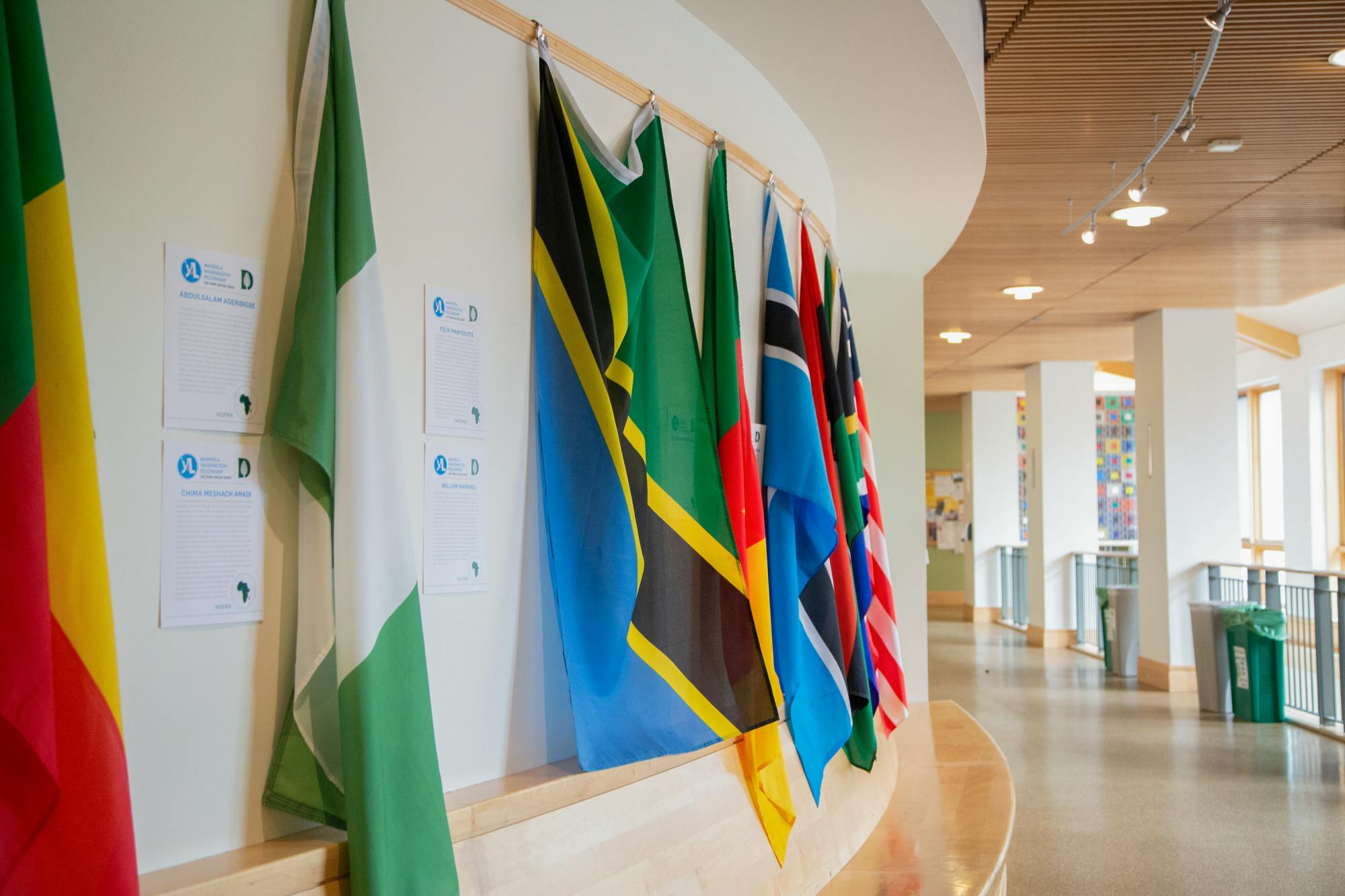From July 22 to Aug. 5, the Dickey Center for International Understanding hosted 24 members of the Mandela Washington Fellowship, the flagship program of the U.S. Department of State Young African Leaders Initiative — a group launched in 2010 to support young African students as they work for economic growth, democracy and peace, according to the Dickey Center.
During their two-week visit to Dartmouth as part of MWF’s Alumni Enrichment Institute, the fellows engaged in various activities — including community service in the Upper Valley, discussions with each other on topics such as volunteerism and visits to the Hood Museum and New Hampshire State House — to participate in cultural exchange and build leadership skills.
“This summer, [we] had the opportunity to do a cultural exchange element of the program and come in and do more of the experience on a U.S. campus [and] have some leadership sessions,” Dickey Center program officer and YALI MWF academic director Amy Newcomb said. The fellows also visited businesses within their professional fields or interests.
All 24 participants had previously engaged in virtual programming for the 2021 Mandela Washington Fellowship, which was moved online due to COVID-19. The College last hosted the fellows in person for a six-week program in 2018, according to Newcomb.
In addition to the 24 fellows at Dartmouth, approximately 170 alumni from the 2021 fellowship will attend programming at seven other educational institutions across the country, according to the webpage. Newcomb said the U.S. State Department reached out to the eight educational institutions to request a condensed two-week version of the program for the 2021 fellows. She added that the Dickey Center “jumped at” the opportunity to host.
“Our entire team said this is the most fun we’ve ever had in our professional experiences,” she said. “We absolutely wanted to find a way to do it.”
Following a three-day orientation, the fellows dedicated each day to topics such as social justice and race in America; leadership and networking; and community engagement and volunteerism, Newcomb said. Dickey Center staff then organized discussions, workshops and site visits based on the theme of the day.
The fellows also participated in community service projects with Upper Valley organizations, including Willing Hands and Spark Community Center, Newcomb said. Dickey Center associate director of Global Health and Development Dawn Carey added that the Dickey Center partnered with the Dartmouth Center for Social Impact to curate the service component of the program.
The fellows also participated in a digital storytelling workshop with Jones Media Center media learning technologist Susan Simon, who said she enjoyed getting to know the fellows.
“It’s [been] a highlight of my career to work with the YALIs,” Simon said. “Their stories are quite profound.”
MWF ended with the fellows’s departure from campus on Aug. 5. Carey said that the fellows “exceeded expectations in their preparedness and their engagement.”
One fellow, Chifuniro Kambauwa, founded an organization that works with women living with HIV/AIDS in her home country of Malawi called Open Arms Foundation. Kambauwa said the foundation encourages women to venture into the fish farming business and teaches the importance of adhering to medication use.
Kambauwa described YALI as a “very good experience,” adding that she can apply lessons learned in the program to her organization.
“Being at the college, at least I had the chance to see how people in America do volunteerism, which is very different from what my country does,” Kambauwa said. “... [Here] I saw people [who were] very much passionate about what they do, about their work, which is different from my country.”
Another fellow, Maribe Mamobolo, said he started a company in South Africa called the Partnerships Resource Hub, aimed at addressing one of the United Nations’ Sustainable Development Goals.
Mamobolo said the YALI program “absolutely fed the core of what I do because I’m in that space of collaboration.”
“There is no other program like this for young Africans to come together and be able to work together, so, for me, that’s at the core of my business,” he added. “...I can easily say that if I go to a particular country [in Africa], I’ve got somebody that I can work with, someone who help me navigate certain spaces.”




